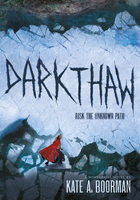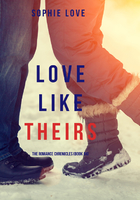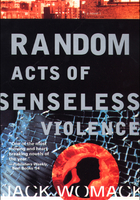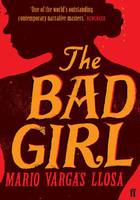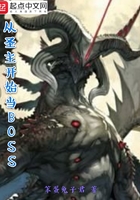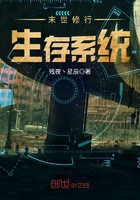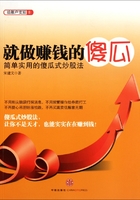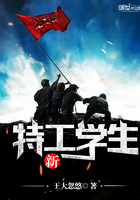I missed the beginning of the Bush years. When the Gore-Bush electoral mess blew up in the news I was living in Moscow, Russia, editing an English-language paper called the eXile and also writing for a mudslinging Russian tabloid called Stringer. While America was busy counting hanging chads and careening toward a constitutional crisis, what I mostly remember is sitting in the Stringer offices pounding vodka with Russian colleagues Leonid Krutakov and Alexei Fomin, and listening to them howl with delight at the news that the mighty U.S.A. was now officially as fucked up and directionless as the Russian state. "Let's see you bastards try to lecture us about our elections now!" I remember Leonid saying, shaking his head with contempt. "We may be a third-world country, but at least we know it!"
Nearly a year later, when 9/11 happened, America was still far away enough for me-I had been gone from it for most of ten years-that I still couldn't quite relate to what was going on back home. In Russia, and in particular in Moscow, terrorist bombings were sort of a regular event. I had twice been within a football field of massive explosions on Tverskaya Avenue, the capital's main drag. In one, a bomb blew up the twentieth floor of the Intourist hotel in what apparently was an unsuc-cessful attempt to assassinate Iosif Kobzon, a wig--wearing mobbed-up crooner often described as the "Russian Sinatra." I was eating an ice cream cone and walking toward Red Square when that one hit; I was close enough to see glass shards landing on the street. Not long after that I was on line at the original Russian McDonald's when the Pushkin Square Metro station exploded; I remember that scene well because so many of the McDonald's customers used the confusion after the blast as an opportunity to cut in line. Terrorist attacks were a part of everyday life in Russia, a regular annoyance to go with industrial disasters, coups d'etat and currency collapses-something to joke about, like the weather.
As such my response to 9/11 was typical for a Muscovite of that period. My paper, the eXile, covered the bombings by running a cover photo showing a businessman bending over his naked secretary high up in a World Trade Center office. Bent over and looking out the window, she sees a plane approaching fast. The headline read: OH GOD, IT'S SO BIG!!!
At the time, I thought that was funny. My clients did not, however-we lost pretty much every corporate advertiser we had because of that goddamn cover. Business decisions like these left me increasingly impoverished and as I steamed toward my mid-thirties I began to recognize the necessity of getting my head screwed on a little straighter, and perhaps even coming back to America to try to earn an actual living.
So in early 2002 I returned to the United States for the first time in nearly a decade, repatriating in the red-hot vigilant period of the Bush years. At first, the culture shock was so intense, I might as well have been on Mars. The post-9/11 war hysteria and paranoia, drummed up on the airwaves by absurd fascist-mouthpiece caricatures of the O'Reilly and Hannity ilk, struck me at first as ridiculous comedy, some bad director's half-baked, overdone rendition of an Orwellian dystopia, as dumb and unbelievable as V for Vendetta.
But as I traveled the country taking up my first freelance assignments on the campaign trail for a project that would eventually turn into an election diary called Spanking the Donkey, it slowly sunk in that this was not a joke, that a great many people in this country were taking this campy, goofball conservatism seriously, that the so-called "Bush revolution" was for real.
By the time the 2004 election ended I had fairly settled in to life back in the States. Like many returning expatriates, my readjustment period came at a cost of a nervous breakdown and the near-total disintegration of my personal life. Once those things were out of the way, however, I emerged transformed into more or less a typical American bourgeois geek, with a huge-screen television, a Gap credit card, a mild hydrocodone habit, no friends, and… a job.
Having gone for nearly a dozen years without a boss-my last experience with regular employment had been a study in incompetence as a bumbling assistant at a private-eye firm in Boston in the early nineties-my first response to being hired to write regular political features for Rolling Stone was sheer terror. Among other things, I was still totally mystified by the whole Bush phenomenon and had serious doubts that I could find anything intelligent to say about it.
On the surface, Bush looked to me just like a stammering dipshit with a third-grade education barely equal to the task of playing the president on television. I felt sure that there had to be some more sophisticated hidden force behind his presidency, some kind of powerful evil brain behind the dumb face, but the people my new colleagues in the American press were touting as "geniuses" and "Svengalis" and "visionaries" behind the regime turned out to be half-bright slobs like Karl Rove (whose "genius" was that he was mean enough to accuse his opponents of having a drug addict wife or an illegitimate daughter) and the president's famed circle of "neocon" advisers, a group of people so stupid, they could only have been bred in expensive graduate schools.
The Wolfowitzes and Cheneys and Feiths who were the alleged brains behind Bush's Iraq campaign were "intellectuals" in the same way that Koko the signing gorilla is a "linguist"-in a technical sense, sure, they used their brains to come up with these silly ideas about spreading democracy in the Muslim Middle East by dropping bombs and marching in to welcoming parades, but the idea that anyone, much less the majority of the country, could be impressed by their erudition struck me as totally amazing.
But people were impressed, and those neocons sure were proud of themselves and their academic chops, giving themselves gigantic polysyllabic titles at the various right-wing think-tanks, accepting many an academic award, giving many a commencement speech in honorific caps and gowns, and publishing scads of verbose books and monographs while wearing important-looking tweed and wire-rimmed glasses for their jacket photos. And while they were doing this, their little Iraq adventure was already blowing up in their faces, an obviously dumb idea about to be turned spectacularly on its ear-but in those early years after 9/11 no one wanted to admit that yet, we wanted to believe these guys had a plan, that they weren't the pompous, preening boneheads they ought to everyone to have seemed to be at the time. Like everyone else, I too made the mistake of thinking there had to be more there, something more behind the unnervingly unimpressive visible reality.
It was like that with almost everything I ended up covering for Rolling Stone. At each of the big events of the Bush era I kept thinking that there had to be something else to the story, some other layer I was missing. Sent to attend the trial of the Enron executives, for instance, I kept looking for that other layer to the conspiracy, the details that would add up to characters of Shakespearean depth-for surely someone who can steal a billion dollars is a very interesting person on some level.
But it wasn't there. Ken Lay and Jeff Skilling just weren't interesting people. Lay was your typically unremarkable mealy-executive type, the kind of person you would expect to be eaten first in any lifeboat situation, while Skilling was just an ordinary corporate egomaniac, the kind of dime-a-dozen asshole you see just about everywhere in America, holding forth with his sleeves rolled up about the "art of selling" for crowds of drooling junior associates in an Applebee's or a Sheraton ballroom somewhere.
Their only "genius" was that they spent a dozen years or so kicking mishit balls back onto the fairway when no one was looking, until they got caught and it all came crashing down and they weren't geniuses anymore but more like supreme all-time retards, two new captains of a modern Titanic prepped to spend all eternity ridiculed for driving themselves and thousands of others into an iceberg-except you'd never know it from the press coverage. For even very late in the Bush era we treated people who were merely exceptionally greedy or exceptionally self-important or exceptionally wrong-headed with reverence and awe, sometimes doing so even after they got caught or indicted or exposed, or after their acts left us broke or underwater or on fire or otherwise in a state of total, irreversible fuckedness.
I remember being at the Enron trial and reading a USA -Today article that described Lay and Skilling as standing "stoically" as the verdicts were announced. I was there; there was nothing "stoic" about the way either of them were standing. Both of these numbskulls were wide-eyed and frightened, mute and with their mouths slightly open, looking like they'd just been whacked across the face with a pine board. Lynndie England had the same face at her trial. The way they were standing could more appropriately have been described as stupidly. And such a posture was as good a metaphor as any I could see for the way the Bush years ended up winding down.
Looking back now, after three years criss-crossing the country for the magazine, I can see that there never really was more to the story. Under the editorial direction of the vaunted National Affairs Desk at Rolling Stone I felt all along an intense pressure to pin down and describe that dark, slimy, ever-present thing about the Bush years that might connect, say, the circus around the Michael Jackson trial to a hurricane disaster area to a once-proud Texas farm town grimly reborn as a privatized, neo-American gulag. There was a curious logic to the assignments I was given that seemed to me to be relentlessly searching out a thesis/theory about the nature of life in the new Republican paradise. In the beginning my failure to really grasp that theory was a source of considerable stress, as I often wondered whether my belated attempt to join the responsible workforce would end in disaster, and escape to another third-world hole where I would be less confused and frightened by my surroundings.
But in the end I understood that there was a good reason that I never tapped into what the hidden truth of the Bush years was, and the reason for that is that there never was anything to tap into. The tragedy of the Bush era is that there was never any depth under its absurd surface-and when the ridiculous exterior washed away, in scandal and indictment and disaster and failure and ignominy, we were left with nothing but emptiness, disorganization, and chaos. If I indulged in any conscious use of metaphor anywhere in these reports it was in the section about hurricane Katrina, where the whole country saw how tenuous our grip on civilization really is, and where those of us who happened to get a close-up look at New Orleans after the flood saw what America in these years looked like behind what turned out to be a very thin curtain.
The Bush administration burst onto the scene like a carnival, full of grand plans and crazy schemes, wars and Patriot Acts, suspensions of laws and habeas corpus and international standards-but in the late years, the years covered in this book, all those plans blew up, and we were left to stare at the wreckage, and stare at each other, and wonder what the fuck happened.
More than once during this time, and especially one dark night as I trudged through the black water of New Orleans in search of a place to sleep in a friend's waterlogged chapel, I recalled a poem by Archibald MacLeish called "The End of the World." The poem is about a circus where freaks and midgets and lions are all performing, and everything is going grandly and circus-like, until suddenly the top of the tent blows off-and there overhead, hanging over the thousands of white faces and dazed eyes, Macleish writes:
There in the starless dark, the poise, the hover,
There with vast wings across the cancelled skies,
There in the sudden blackness the black pall
Of nothing, nothing, nothing-nothing at all.
That was the big joke of the Bush years. Our leaders during this time were dumb as rocks, they couldn't see beyond a few feet in front of their faces, their plans were infantile and embarrassingly mean-spirited, and as it turned out they screwed us all over very badly for at least a generation to come. But when they finally knocked themselves out of the picture, hanging themselves with a rope of their own rapacious incompetence, we were forced to remember that we were the ones who put them in charge in the first place. If those guys were that dumb, what does that say about us, the ones left holding the bag? We now get to spend the next four years considering that question, and God help anyone who looks forward to finding out the answer.
Smells Like Dead Elephants


